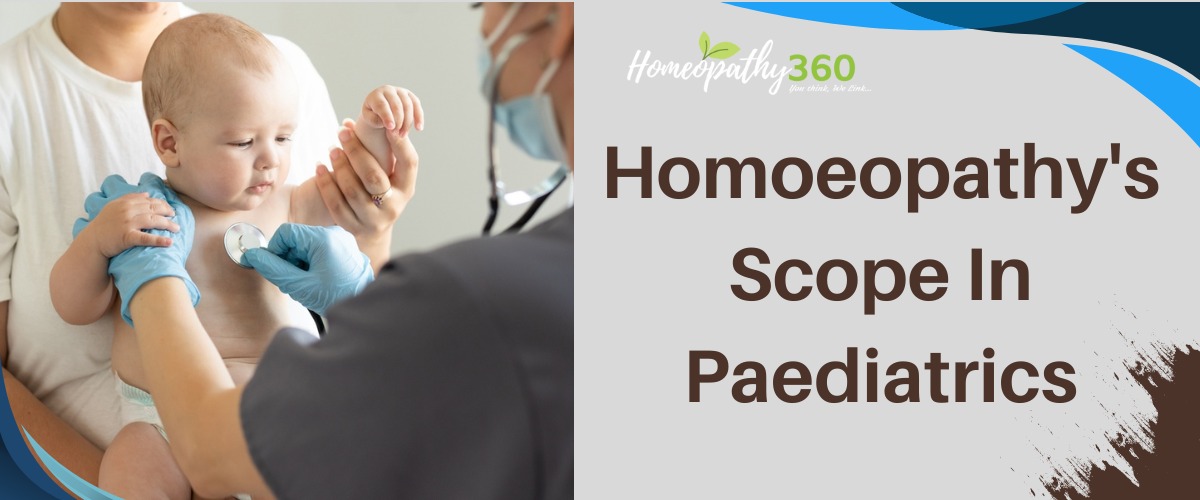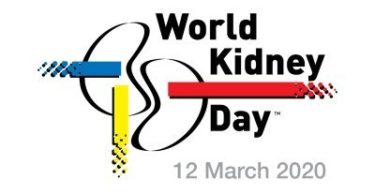
Abstract
Children can receive gentle, non-invasive therapy with homeopathy, a holistic method. It focuses on treating the underlying cause of the sickness, taking into consideration each child’s distinct constitution and vulnerability to different ailments. Homeopaths provide individualised treatment by carefully evaluating a child’s physical, emotional, and developmental characteristics. Since homoeopathy treats the child as a whole—mind, body, and spirit—it is especially appropriate for young children who could be sensitive to potent drugs or treatments. In contrast to simply treating symptoms, its goal is to improve general health and well-being.
Keywords : skin, respiratory, paediatrics, homoeopathy, psychiatric
Introduction Both adults and children can benefit from homeopathy as a safe and efficient therapy option. Globally, the number of patients utilising homeopathy is increasing.
A recent study that was published in the European Journal of Paediatrics found that homeopathic medication is more effective than allopathic treatment for common illnesses that affect children under the age of two
Researchers examined the health status of 108 infants from birth to 24 months of age who received conventional or homeopathic treatment for a variety of acute disease episodes, including respiratory infections, fevers, and diarrhoea.
Over the course of the 24 months, it was discovered that individuals in the homeopathic group had a third fewer sick days than those in the conventional group1. Numerous studies have demonstrated that using homeopathic remedies to treat a range of ailments in children has
produced notable results. Because the recommended dosages are so little, homeopathy strengthens the patient’s resistance and improves their capacity to fight off illnesses. It also boosts the immune system, which makes it possible for the body to fight off illnesses more successfully. Since homeopathic medicines have few, if any, negative effects on kids and are sweet, kids are more likely to take them voluntarily, homeopathy provides a practical and safe way to treat pediatric illnesses.
Being familiar with the child:
In the current period of rapid scientific advancement, a child is a product of the mother’s environment during pregnancy, childbirth, and the early years of childrearing. The management of many disorders in children is changing constantly due to advancements in molecular biology, genetics, and immunology. The effects of various factors from the day of conception on the fetus’s intrauterine life, which greatly influences the child’s disposition, are well known. From the day of birth, the infant goes through a lot of changes and experiences rapid physical and mental growth; therefore, it is important to assess the child in accordance with these changes in order to properly understand the child’s individuality and overall development2.
Being Aware of the Parents:
These days, parents are increasingly worried about their children’s health, particularly when they are ill. Parental guilt and attention to the child, particularly when its emotional demands are high, are common outcomes of the growing tendency toward nuclear families, where both parents work and are under time pressure. The parents cannot afford to spend enough time with their child, even while he is ill. And they run from doctor to doctor in pursuit of the best and fastest treatment in an attempt to find a quick fix.
Some parents do not mind paying any amount of money for treatment that may not be required in many cases since they feel bad about it and want to impress their spouse. In the process, some doctors use needless medication to treat even minor and self-limiting problems. This can be risky at times. Parents can better comprehend their child’s health and illness with the aid of homeopathy. in order to prevent needless worry and medication use2.
General Homoeopathy for the Paediatric Population Impacting Different Systems
Almost of children’s health issues can be managed with homeopathy. From early childhood to maturity, homeopathy is useful in treating a variety of illnesses, including as respiratory, cutaneous, and nutritional issues, as well as systemic and infectious diseases. Additionally, it has
been shown to be effective in treating behavioural problems in kids, including autism, phobias, hyperactivity, and bedwetting.
Paediatric Respiratory Conditions
One of the most prevalent illnesses affecting children is respiratory disorders. Upper and lower respiratory tract problems have increased as a result of a number of factors, including congested living conditions, meals heavy in artificial coloring and preservatives, and changes in lifestyle.
Frequent colds, sinusitis, pharyngitis, laryngitis, bronchitis, pneumonia, asthma, and pulmonary tuberculosis are among the common ailments. Numerous pathogens, including bacteria, fungi, viruses, and others, can cause these diseases. To determine the effectiveness and efficacy of homeopathic medications in treating children’s acute rhinitis, a multi-centric open clinical trial investigation was conducted3.
Such situations have been successfully treated with homeopathy. Additionally, it aids in the treatment of anorexia and post-infection weakness. The following are some general medications and their indications that may be taken into consideration for paediatric respiratory problems. However, case taking, symptom analysis, and evaluation will determine which similimum is most suited.
- Lycopodium : Ideal for youngsters with big abdomens who are malnourished despite eating properly. When children are ill, they become agitated, anxious, and uncontrollable. A child can be both well-behaved when they are not at home and rude when they are. Snuffles, child yawns, rubs dry nose, stops at night, and removes crust and elastic plugs from the nose.
- Hepar Sulph : The child is angry at trivial things, has a temper tantrum, is cross, and doesn’t laugh or enjoy themselves. The crucial factor here is oversensitivity. Excessive sensitivity to cold air (pain, touch, dry cold air). Despite a lot of washing, babies are usually grumpy. Strong, acidic tastes are preferred, while foods high in fat are avoided. < chilly air, uncovering, eating, and drinking cold items, touching the afflicted area, resting on the side that hurts, and a tiny air draft. >warmth,wrapping up,damp wet weather4,5,6.
- Antimonium Tarticum : The child has stomach and catarrhal affection and is weak, pale, and doesn’t want to be touched or seen. Respiration is impacted by a large buildup of mucus with harsh rattling. The movement of the heart becomes laborious.
Agg. – Damp cold weather, change of weather, warm room, lying at night. Amel. – Cold open air, sitting upright, expect lying on right
Children’s Skin Conditions
Children’s skin disorders can range in severity from minor problems like diaper rash and fungal infections to more serious ailments like psoriasis and atopic dermatitis. In the practice of homoeopathy, these circumstances are frequently observed. According to a study on homeopathy’s effectiveness in treating atopic disorders in children, there was a notable decrease in the likelihood of developing asthma (as well as allergic rhinitis) and maintaining atopic dermatitis as an adult.
According to homoeopathy, a person’s mental and emotional states are reflected in their bodily problems, including skin conditions. As a result, treatment takes into account every facet of the child, including their growth, temperament, moods, anxieties, and food preferences and dislikes. Furthermore, it is frequently discovered that the conditions of the unborn kid are significantly correlated with the mother’s status throughout pregnancy. Here are a few general medications and their indications that may be used for children’s skin conditions. However, case taking, symptom analysis, and evaluation will determine which simile is most suited.
Silicea Terra : Ideal for developing kids who experience malnutrition as a result of poor absorption. Youngsters are timid, apprehensive, agitated, and feeble. likelihood of suppuration. a lot of sweat on the head, especially at night. unpleasant perspiration on the feet. sinus, fistula, induration, and suppuration.
< new moon, draft of cold air, uncovering, washing
> Warmth, covering, profuse urination4,5,6.
Graphites : Ideal for chubby, overweight kids who have a persistent chill and a herpes outbreak that causes a sticky discharge. Fearful, timid, and indecisive. chuckles when reprimanded. skin folds, cracks, fissures, dryness, lack of sweat, and tissue cracks at the mouth, anus, and mucocutaneous junction. Especially on a person’s face or full scalp, offensive discharges are translucent, honey-like, caustic fluid.
Aggravation delicious cuisine, warmth on a typical night
Amelioration of warm beverages, being outside, eructation, and being encircled4,5,6.
Sulphur : Ideal for children with stooping shoulders. The youngster appears to be elderly. Children are unclean appearing with resistance to being bathed. burning of the soles in bed when heated. redness, soreness, and sensitivity of orifices such as the lips, urethra, ears, and nose, among others. Discharges are unpleasant with noticeable burning.
< warmth of bed, washing, suppression of skin diseases, change of weather >Dry warm weather, right side4,5,6.
Petroleum: Ideal for kids who are more likely to have cutaneous eruption, stomach acidity, and mucous membrane catarrhal disorders. An effective treatment for diaper rash and occipital eczema. diarrhea following an eruption that was repressed. Hands and fingers are rough and dry. tough, hard, and filthy skin that has thickened like parchment. deep fissures, particularly in folds.
< motion, riding a carriage, boat, winters, damp weather, change of weather > summers, warm dry weather4,5,6.
In cases of diarrhea:
By addressing the underlying causes of the illness as well as its symptoms, homeopathy has shown promise in the treatment of pediatric diarrhea. The frequency and consistency of the stools, as well as any other symptoms like discomfort or emotional distress before, during, or after passing the stools, are taken into consideration while selecting a remedy. The usefulness of predetermined homoeopathic medicines in the treatment of acute diarrheal disease in children was investigated in a prospective multicenter observational study. It demonstrated that acute medicine can definitely change the course of diarrhea, and that taking a constitutional drug after acute medicine had a major effect on reducing the frequency, length, and severity of diarrhea8. Here are a few general medications and their indications that may be used for pediatric diarrhea. However, case taking, symptom analysis, and evaluation will determine which simile is most suited.
Chamomilla : The child’s mental sensitivity is excessive. adapted to kids who have light brown hair and a temperament that is prone to annoyance. The child is irascible, rude, and prone to arguments. wants to be transported.Stools: Colic is hot, green, watery, foul-smelling, slimy, and contains yellow and white mucus that resembles chopped spinach and eggs. diarrhea while having dental work done.
>being carried,sweating,heat,cold application.
<heat,anger, open air, wind ,night4,5,6.
Homeopathy in Mental Health Conditions
Since our system treats children’s mental as well as physical problems, conditions including ADHD, autism, mental retardation, developmental delay, and nocturnal enuresis are frequently cited as causes for consultation in homeopathy. A study was carried out to gather scientific proof
of homeopathy’s efficacy in treating ADHD. These trials provided scientific proof of homeopathy’s efficacy in treating attention deficit hyperactivity disorder, especially when it comes to behavioral and cognitive functions9.
A thorough examination of the child’s physical health concerns, family medical history, sleeping patterns, dietary preferences, temperament, and behavioral characteristics are all part of homeopathic treatment. Here are a few general medications and their indications that may be used for children’s mental health conditions. However, case taking, symptom analysis, and evaluation will determine which simile is most suited.
Aethusa Cynapium : Inability to focus, particularly when reading, bewilderment, and stupidity. Brain fag, wants companionship. Anxiety-related complaints. Not able to handle milk. loves animals and has sympathy and empathy for them.< after eating or drinking, hot summer weather, milk, after stool, after spasm, dentition.> covering, open fresh air, sea shore, rest, company4,5,6.
Kreosote : Especially suitable for the baby in the cradle. Children who appear elderly and exhibit signs of illness and misery. scrofulous, wrinkled, rapidly emaciated, and having a challenging dentition. children who are overgrown and underdeveloped. incredibly tall for her age. forgetfulness. During the first sleep (Sepia), the child wets the bed. At night, when he dreams about urinating, he wets the bed. The act of urinating awakens him up, but he can’t stop it.<Open air; Cold weather; From washing, bathing in cold water; During urination.>From warmth4,5,6.
Sepia : Children with firm fiber, black hair, and a calm or easy demeanor. A child with blotched or dirty brown complexion who is puffy and flabby. disregard for those you love. Absence of feeling. unable to show affection. A child who is irritable. unable to tolerate contradiction. Sensitive, angry, and easily displeased and depressed. Never seems content. The toddler urinates and defecates all over the place. children’s involuntary urinating that is tough to wake up.Cold air; lying on the left side; morning and evening before a thunderstorm. >Exercise, intense activity, pressure, bed warmth, hot application, post-sleep, and drawn-up legs4,5,6.
Baryta Carb : children who are cognitively and physically dwarfed and have stunted growth. delayed or late acquisition of reading and speaking skills. unable to understand or delayed in memorization. continuous complaining. a dislike of playing, uneasiness with others, and a
decline in confidence.< company, thinking of symptoms, cold damp weather,lying on painful part.> cold food, warm wraps, when alone4,5,6.
Conclusion
Children can benefit from homeopathy for a variety of ailments, including aches, pains, behavioural difficulties, and infantile colic and teething concerns. This medical technique prevents diseases by strengthening a child’s immune from the inside out. Homoeopathy helps children better fend off common diseases like the flu or colds by bolstering the body’s natural defenses, which keeps them healthy and illness-free for longer.
In order to further the science of homeopathy, the information offered emphasises the necessity for additional study on pediatric diseases. Although there are encouraging outcomes in clinical practice, they are frequently not recorded because appropriate documentation is not prioritised.
As a result, every homeopath ought to work hard to promote homeopathy as a very safe and effective treatment for kids.
References
- Oberbaum, M., Chaudhary, A., Ponnam, H.B. et al. Homoeopathy vs. conventional primary care in children during the first 24 months of life—a pragmatic randomised controlled trial. Eur J Pediatr 183, 5455–5465 (2024).
- Shashi Kant Tiwari. Homoeopathy and Child Care. B Jain Pub Pvt Limited; 2009.
- Jain PB. Essence of Pediatric Materia Medica: Infant, Toddler, Schooling Children. 2nd ed. New Delhi: Nitya Publications; 2019.
- Allen HC. Keynotes : rearranged and classified with leading remedies of the materia medica and bowel nosodes including repertorial index. Noida, U.P., India: B. Jain Publishers (P) Ltd; 2017.
- Boericke, W., 2002. Pocket Manual of Homoeopathic Materia Medica & Repertory: Comprising of the Characteristic and Guiding Symptoms of All Remedies (clinical and Pathogenetic) Including Indian Drugs. New Delhi, India. B. Jain publishers.
- Chaturbhuja Nayak et al. A multi-centric open clinical trial to evaluate the usefulness of 13 predefined homoeopathic medicine in the management of acute rhinitis in children. Int J High Dilution Res 2010;9(30);15-27 16.
- Elio Rossi et al. Homoeopathy in Pediatric atopic diseases; long- term results in children with atopic dermatitis. Homoeopathy, Vol. 101, No 1, 2012. 8. Nayak C, Singh V, Singh K, et al. A Prospective Multicentric Observational Study to Evolve the Usefulness of the Predefined Homoeopathic Medicines in the Management of Acute Diarrheal Disease in Children. Indian J Res Homoeopathy
- Frei H et al. Homoeopathic treatment of children with attention deficit hyperactivity disorder; a randomized, double blind, placebo Controlled Crossover trial. Eur J Pediatr. 2005 Dec;164 (12);758- 67. Epub 2005 Jul
Authors
Dr. Prasoon Choudhary1, Dr. Kamal Nainawat2, Dr. Tushar Agarwal3, Dr. Vandana Yadav4, Dr. Vanshika5
1 HOD, Dept Of Paediatrics, Dr. M.P.K. Homeopathic Medical College, Hospital and Research Center( Constituent College of Homoeopathy University), Sanganer, Jaipur, Rajasthan
2,3,5 PG Scholar Dept Of Paediatrics, Dr. M.P.K. Homeopathic Medical College, Hospital and Research Center( Constituent College of Homoeopathy University), Sanganer, Jaipur, Rajasthan
4 PG Scholar, Dept Of Organon Of Medicine, Dr. M.P.K. Homeopathic Medical College, Hospital and Research Center( Constituent College of Homoeopathy University), Sanganer, Jaipur, Rajasthan




